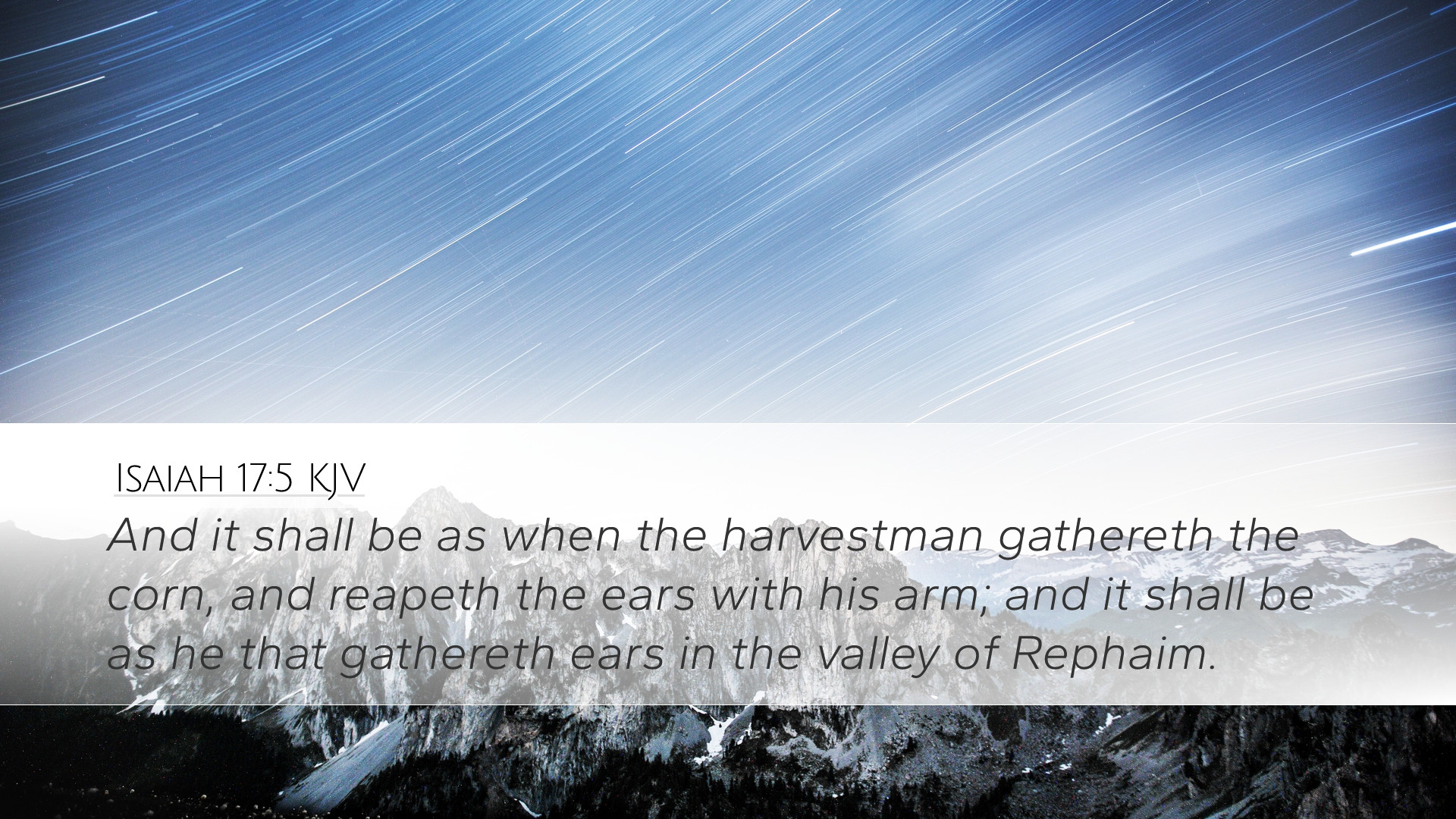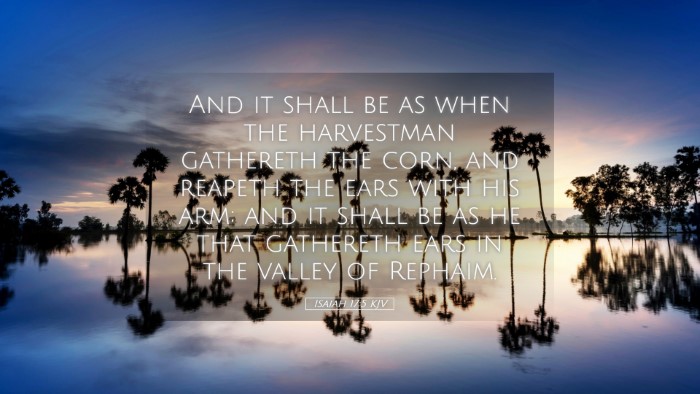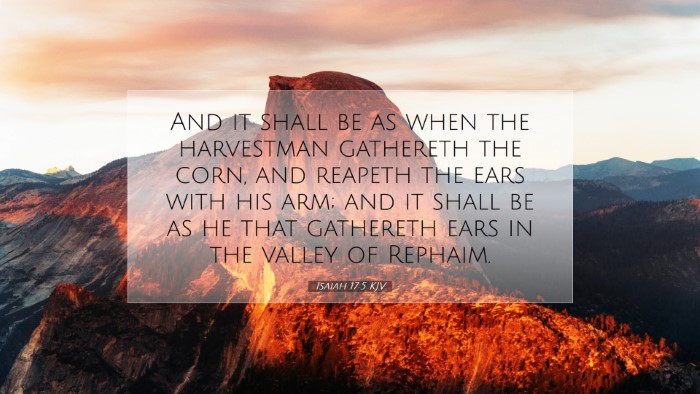Commentary on Isaiah 17:5
Isaiah 17:5 states: “And it shall be as when the harvestman gathereth the corn, and reapeth the ears with his arm; and it shall be as he that gathereth ears in the valley of Rephaim.” This verse is a part of a prophecy that Isaiah delivers concerning the judgment upon Damascus and the surrounding regions.
Contextual Overview
The chapter begins with a declaration of the fate of Damascus, which serves as a significant city in Syria and historically an enemy to Israel. The prophecy foretells a desolation that shall come upon it, symbolizing the broader spiritual desolation of those who oppose God's will.
Commentary Insights
1. The Harvest Metaphor
The imagery of harvest is commonly used in Scripture to symbolize gathering and reaping, both in terms of physical produce and spiritual consequences. Matthew Henry emphasizes the idea that just as a harvest signifies the culmination of growth and labor, so too does this judgment signify the culmination of Israel's struggles against external forces.
2. Gathering the Corn
Albert Barnes elaborates on this by interpreting the harvest as a striking indication of sudden judgment. The act of the harvestman gathering corn not only highlights the certainty of the outcome but also reflects the swiftness in which judgment shall fall upon those who have turned away from the Lord. This gathering could also suggest that the faithful will be preserved even amidst a judgment that befalls the unfaithful.
3. Significance of the Valley of Rephaim
The Valley of Rephaim is historically known as a significant site in Israel's battle narratives. Adam Clarke notes that the reference to this valley indicates both geographical and metaphorical importance. It represents the place where battles against formidable foes were fought, suggesting that the coming judgment will be powerful and decisive, like a farmer expertly reaping a bountiful harvest.
4. The Duality of Judgment
The verse encapsulates a dual aspect of God's judgment: Matthew Henry posits that the imagery serves as both a warning and an assurance. For the wicked, it represents imminent destruction, while for the righteous, it embodies the promise of deliverance. This division highlights the character of God as just and merciful; those who seek Him will reap the benefits of His grace.
Theological Themes
- The Sovereignty of God: This passage emphasizes God's control over the nations and the certainty of His plans unfolding.
- Reaping and Sowing: The principle of reaping what one sows runs throughout Scripture, affirming divine justice.
- The Hope of Restoration: Amidst the promise of judgment, the possibility of restoration and redemption is ever-present for those who turn back to God.
Reflection for Ministry
For pastors and leaders, Isaiah 17:5 serves as a poignant reminder of the realities of sin and the associated consequences. It challenges the faithful to continually examine their lives in relation to God's expectations.
Moreover, it underscores the importance of proclaiming both God's justice and His mercy in the life of the church. In a culture often resistant to concepts of judgment, there is a dire need for clear teaching about the results of sin juxtaposed with the call to repentance and faith.
Conclusion
Isaiah 17:5, rich in metaphorical content and theological depth, invites careful consideration and reflection. By engaging with the insights offered by both historic and contemporary commentaries, pastors, students, and scholars can gain a deeper appreciation of the complexities of God's dealings with humanity and the profound truths contained within this prophetic verse.


